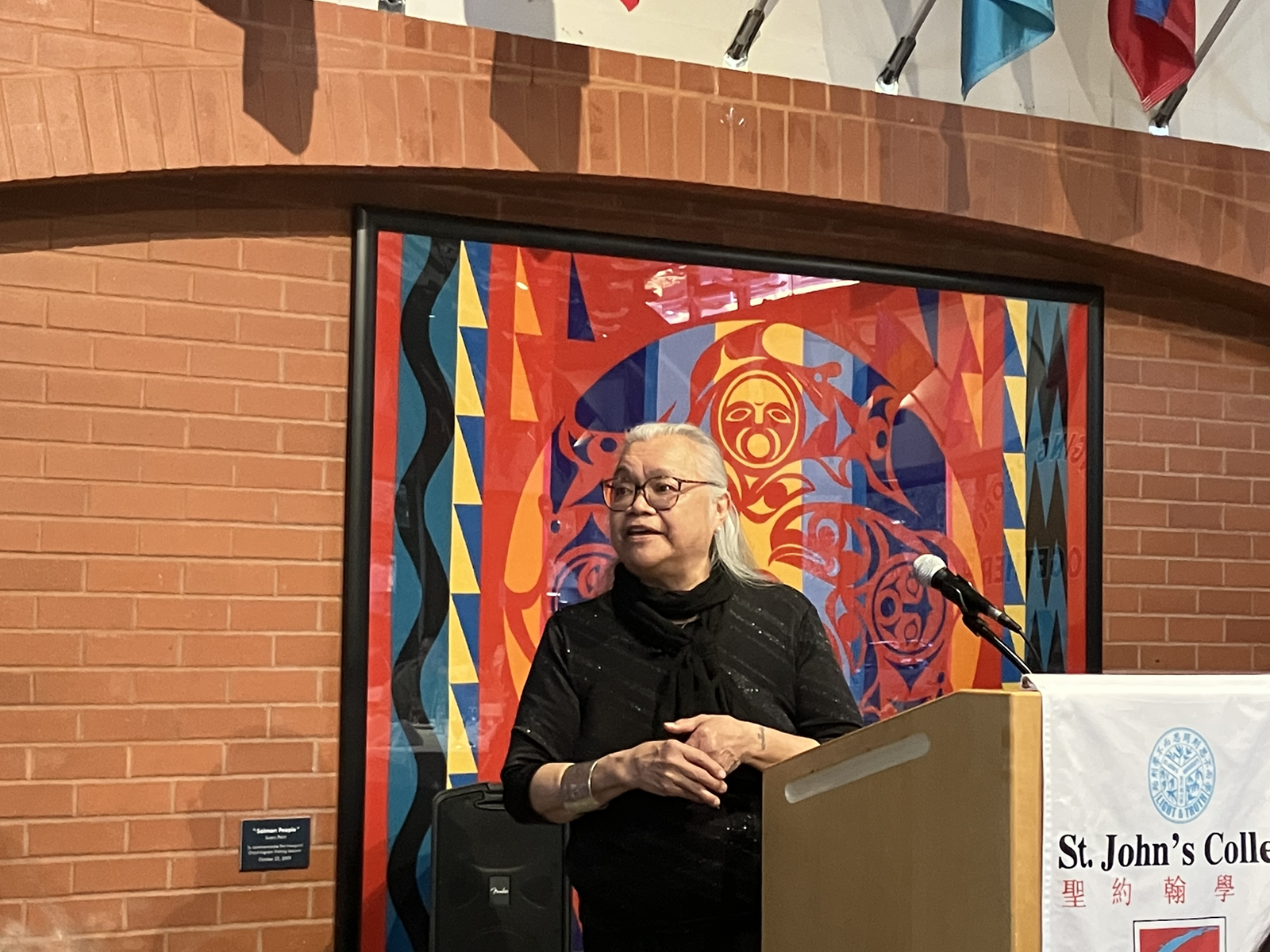For this year's Diabetes Awareness Month, we are sharing the wisdom and advice of two First Nations people who are living well with Type 2 diabetes, the first of whom is Elder Margaretta James from Mowachaht/Muchalaht First Nation, one of the Nuuchahnulth Nations on Vancouver Island.
We are grateful to her for being open and willing to share her experiences in order to help others. We trust that those of you who have diabetes will find something useful in her story that will help you as you navigate living well with diabetes!

Elder Margaretta James will complete her Master's degree at UBC's Institute for Gender, Race, Sexuality, and Social Justice in 2025. She is a Visiting Scholar in Residence at UBC's St. John's College.
I was diagnosed with Type 2 diabetes when I was 60 years old; I'm now 73. Diabetes directly affects most aspects of my life including the food I eat; the physical activity I choose; my mental and spiritual well-being; and my social relationships. If you have diabetes, you know that it means significant lifestyle changes. In my case, the first year I was diagnosed (2011), I lost 60 pounds due to dietary changes that included quitting drinking wine.
I attended diabetes education sessions, and these were important in educating me about what I faced and would continue to endure for the rest of my days. When I first started learning about diabetes, I believed it was caused by eating too much sugar, but now I know it involves more than that. I was also worried as a friend had had her leg amputated from her knee down as a result of her diabetes when she was in her early 30s.
I took the steps I needed to take to learn about how to manage diabetes and live well in spite of it. In addition to taking my metformin and high blood pressure medications regularly, I created a list of vitamins and minerals as a part of my daily intake of pills. I have a daily routine of movement including yoga, stretches and breathing exercises. These help me with my mental health and get my blood going in the morning (I rise between 5:00 and 7:00 am). I try to limit my daily coffee consumption (stevia and a bit of milk/cream) and keep myself hydrated throughout the day. All menu items are fresh and as healthy as possible depending on my daily activity.
I also see a therapist when needed, at least monthly, to help me deal with traumatic childhood experiences. My spiritual and religious beliefs are blended – I was raised Catholic but have become aware in the past few decades of Indigeneity and the spiritual and practical oneness of being.
I have found it helpful to acknowledge that life is what it is; to appreciate, love and be there for my family; and to take time out for self-care and self-love. I will be completing my Master's degree at UBC by spring 2025 at the age of 74, and will continue working for my community in various capacities as I have done for 43+ years.
I believe it is essential that we provide our people, including our children, with the resources they need to educate themselves about this disease. Education is key to thriving and living a life of enlightenment (not just surviving). Find a passion and go for it. In addition to becoming educated, we need to keep moving; eat healthy; and become aware of substance use and abuse early on with our children. We need to truly seek and source peace and joy in our lives and our children's lives.

